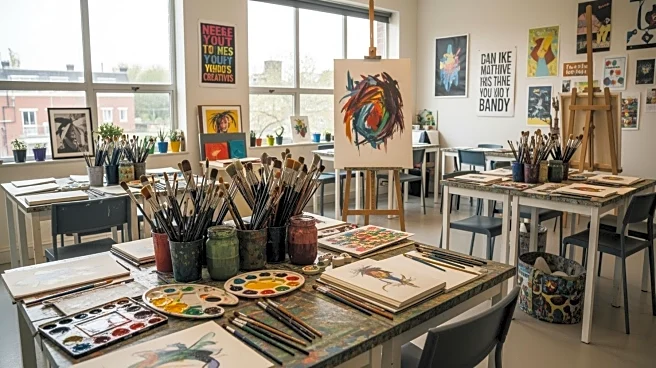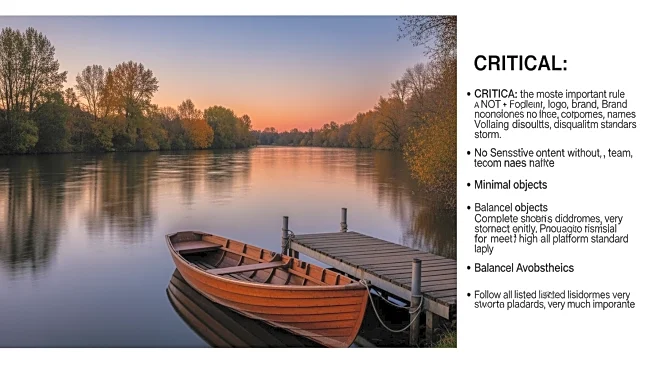What's Happening?
A new arts centre is set to open in Worcester, aiming to support young creatives in the city. The venue, formerly a cinema, will be transformed into an arts hub called Scala, scheduled to open in October 2026. Dr. Hannah Phillips, a local theatre director,
writer, and producer, has been appointed as the chief executive and artistic director. The centre plans to host a variety of events, including live performances, independent films, music, dance, and festivals. Dr. Phillips emphasized the importance of engaging with local colleges and universities to foster young artistic talent. The centre aims to create a vibrant festival atmosphere and support bold, ambitious programming, including aerial, circus, and digital installations.
Why It's Important?
The establishment of the Scala arts centre is significant for Worcester's cultural landscape, as it provides a dedicated space for young artists to develop and showcase their talents. By collaborating with local educational institutions, the centre aims to retain creative talent within the city, potentially boosting the local economy and cultural scene. The initiative reflects a broader trend of investing in community-based arts projects, which can enhance social cohesion and provide educational opportunities. The centre's focus on diverse programming may attract a wide audience, contributing to Worcester's reputation as a cultural hub.
What's Next?
As the Scala arts centre prepares for its opening, collaboration with Worcester City Council will be crucial in developing and delivering the project. The centre's registration as a charitable incorporated organization indicates a commitment to community engagement and sustainable operations. Future steps may include finalizing partnerships with local colleges and universities, as well as planning the inaugural events and programming. The success of the centre could inspire similar initiatives in other regions, promoting the arts as a vital component of community development.
Beyond the Headlines
The transformation of the former cinema into an arts centre highlights the adaptive reuse of historical buildings, preserving cultural heritage while serving contemporary needs. This approach can be seen as a model for other cities looking to revitalize unused spaces. Additionally, the focus on supporting young creatives aligns with broader efforts to address youth unemployment and provide career pathways in the arts. The centre's emphasis on community co-creation may foster a sense of ownership and belonging among residents, encouraging active participation in cultural activities.
















